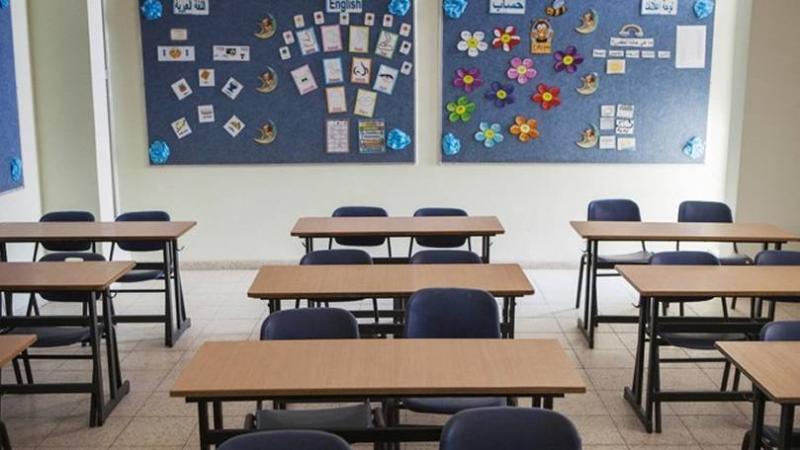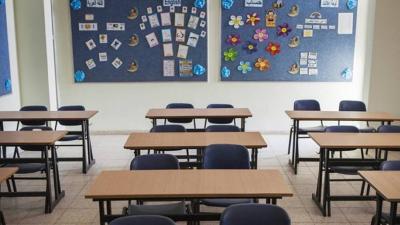"The average monthly income of a teacher is $131, while monthly transportation costs amount to $128, leaving them with only $3 to meet their needs for the entire month." This is one of the alarming conclusions reached by the Lebanese Studies Center affiliated with LAU in a survey being conducted for the second consecutive year on the impact of the crisis on the education sector in Lebanon. The academic year is not in good shape. 66% of teachers (39,000 in public schools and 50,000 in private schools) work a second job to cover their living expenses after the collapse of the Lebanese pound has led to a decrease in their salaries by more than 90%. As a result of despair, 73% of them plan to leave the education sector, while three out of four teachers reported that they plan to leave Lebanon.
The figures tell an even more troubling story. 73% of teachers face difficulties in paying their bills, a not surprising figure given that the average monthly costs of electricity and internet represent 139% of the average monthly income of teachers. Meanwhile, 99% of teachers reported that the crisis has deprived them of access to medical services. Those who were compelled to miss teaching days due to high transportation costs were subject to disciplinary actions and deprivation of the additional compensation of $90.
The problem does not stop with the teachers; the crisis has also negatively impacted children's academic performance and overall mental well-being. 10% have dropped out of school, and 15% have repeated their grades. The economic crisis has also affected schools' ability to open their doors, with three-quarters of teachers saying their schools are not fully prepared to welcome a new academic year amid the fuel crisis and staff shortages, which could significantly affect the quality of teaching and learning for the fourth consecutive year.
But what about the parents? The survey indicates that the average annual tuition fees paid by parents for each child amount to $1,037, along with transportation fees of $1,318, totaling $2,355. Despite the Ministry of Education's restrictions on increasing tuition fees in private schools, 7 out of 10 parents reported that their children's school requests payment of part of the tuition in US dollars, in addition to the costs in pounds that continue to rise. In contrast to this increase in tuition fees, the average monthly income reported by parents is $462, meaning they spend 42% of their annual income on the education of one child. These numbers do not include additional educational costs such as books and stationery.
With rising tuition fees, half of the parents reported that they have transferred their children from private to public schools, with 87% indicating that they can no longer afford private school costs. Additionally, transportation costs represent another burden for parents, as the average expenditure for covering their children's transportation to school is $110. Faced with this alarming reality, indicating significant difficulty in starting the academic year, and a major shortfall from teachers, students, their parents, and schools, there is an urgent need for practical solutions to salvage what can be salvaged before it is too late.
Dr. Maha Shaib, the head of the Lebanese Studies Center, emphasized in an interview with MTV the necessity of taking urgent steps to develop a back-to-school plan in both the public and private sectors at the beginning of the school holiday and not leaving solutions until the last moment. She called for addressing the technical issues that hinder teachers from receiving additional compensation and paying their due salaries and incentives.
She announced a series of recommendations for the concerned parties, the most important of which include adjusting teachers' salaries to align with inflation rates and increased living costs, modifying the transportation allowance to reflect rising fuel and transport costs, ensuring that teachers receive necessary medical services and medications, monitoring private schools and capping tuition increases, and ensuring that any rise in fees reflects on teachers' salaries. Additionally, providing need-based families with scholarships to cover education and transportation costs, reviewing the current curriculum to reduce the accumulation of learning difficulties and minimize dropout rates, and disbursing aid and grants from funders to beneficiaries at their original values while taking necessary arrangements to prevent the loss of these grants' value due to banking policies. Transparency in the provision of assistance and grants by the Ministry of Education is also crucial.
Will this bleak reality of education in Lebanon motivate the concerned parties to declare an educational emergency to save the upcoming academic year?




